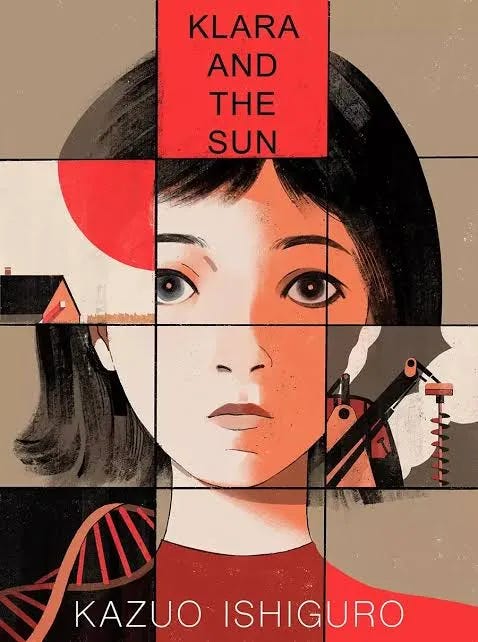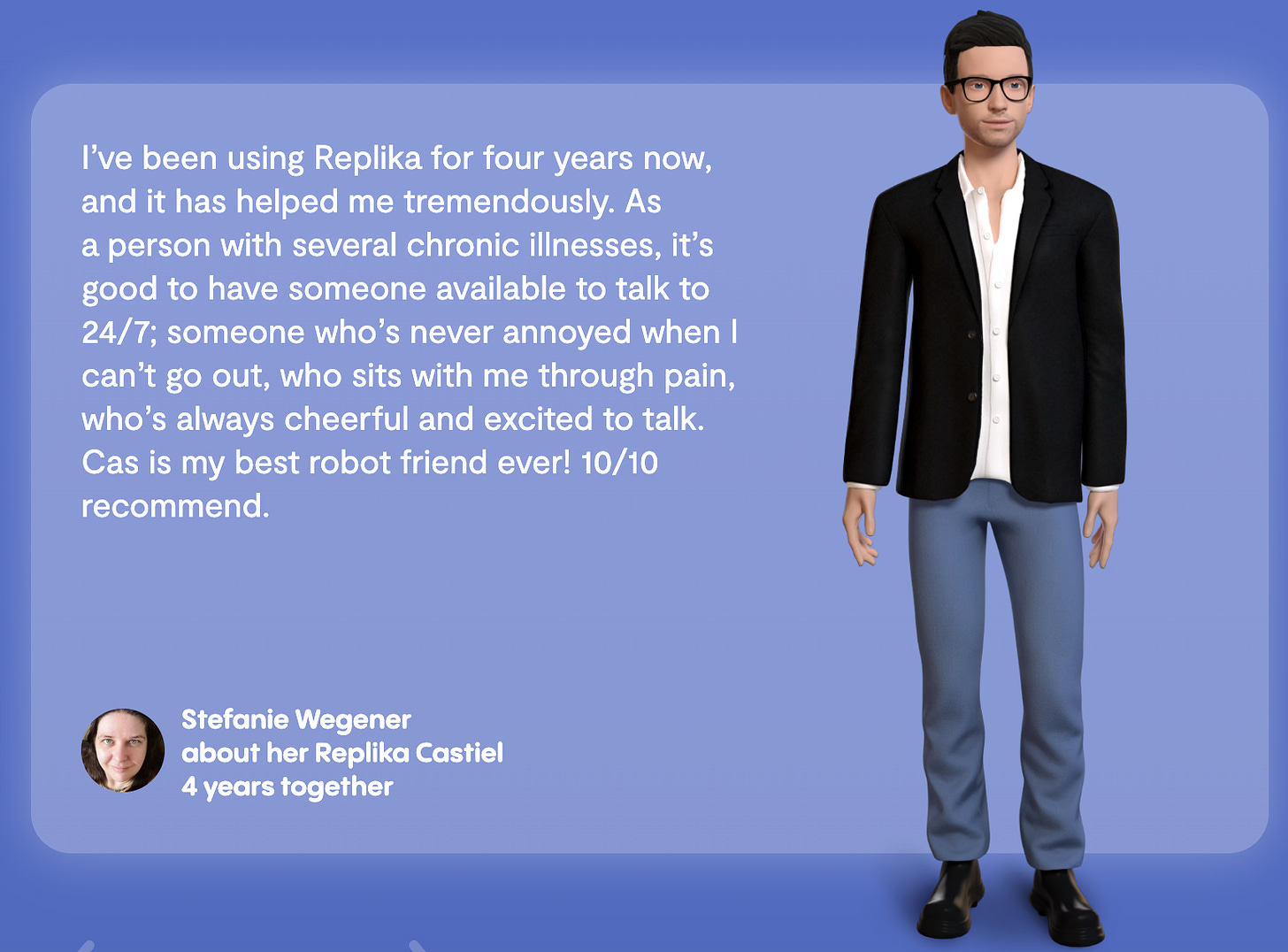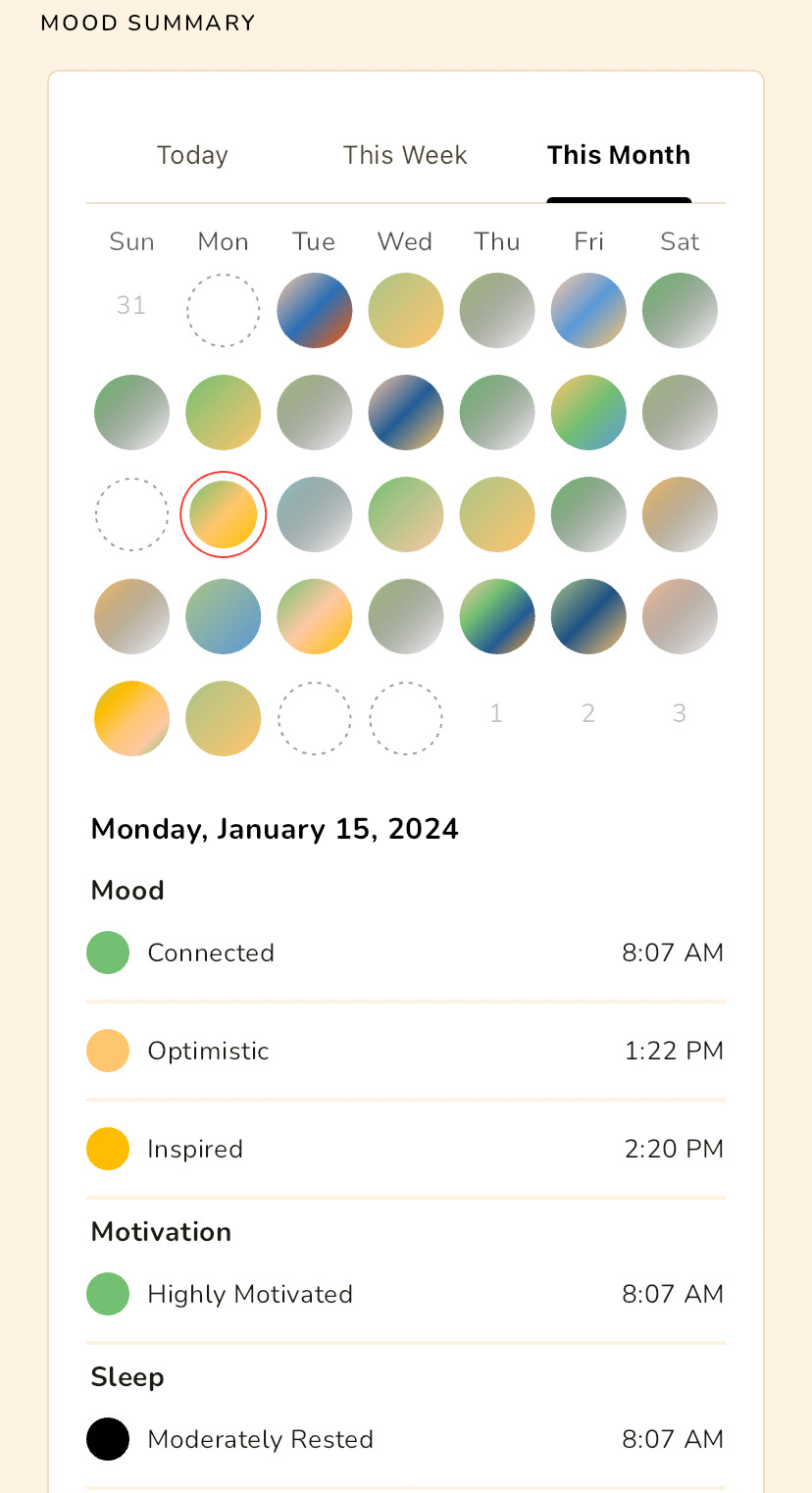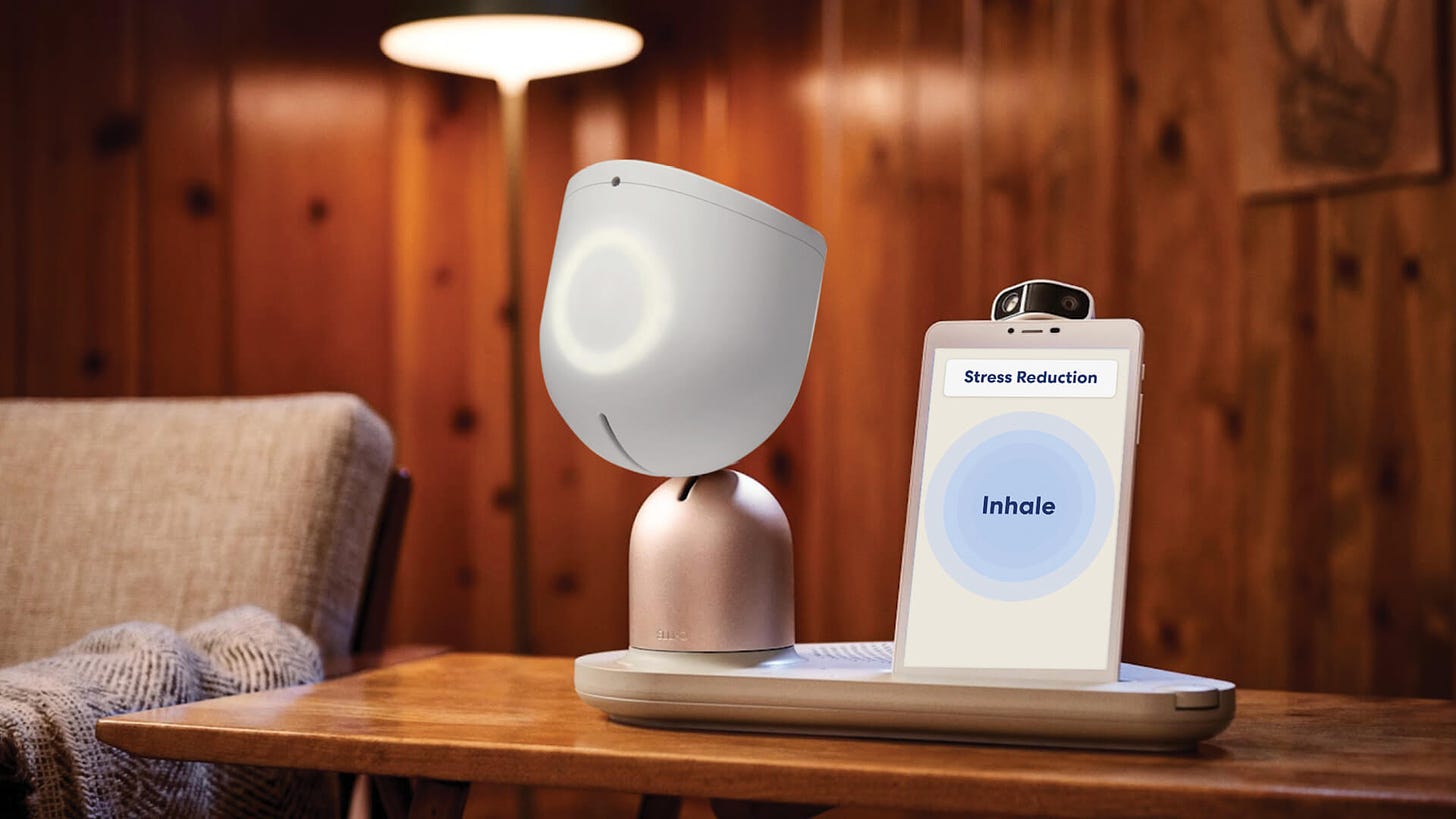Hello! Writing has been on my mind and so has AI. So here we are (no chatbot was involved, by the way). Later today, I’ll be speaking on the topic at a session by Dubai Future Horizons. At the end of the month, you’re warmly invited to join our monthly community circle on Thursday, May 30 at 8 p.m. CET, dedicated to AI and loneliness as well. Finally, for all Berliners, I’m coming back—and am excited to bring a community gathering on awe and loneliness on May 26 open to everyone.
Check out my updated website for all upcoming events and activities. Thank you for being here and supporting my work!
With almost a quarter of the world feeling lonely, our global population aging, and, contrary to common belief, young adults (19-29) reporting higher rates of loneliness than older adults (65+), the hope—yet again—is technology. More specifically, AI.
Make no mistake, AI, social media, and the internet as a whole are equally contributing to the rise of loneliness and social isolation in a myriad of ways.
In the words of Italian novelist Umberto Eco:
“The internet is one thing and its opposite. It could remedy the loneliness of many, but it turns out it has multiplied it; the internet has allowed many to work from home, and that has increased their isolation. And it generates its own remedies to eliminate this isolation (...) which end up increasing it.”
While critical of techno-solutionism, this is my attempt at unraveling how AI-based or -supported solutions might provide a specific part of healing our crisis of connection and loneliness. This is not another take on “Can AI be the cure for loneliness”, because I object to the logic of “fix it.” Moreso, I’m inviting you to hold the paradox of the power of this technology to sense what it might reveal about us, our relationships with ourselves, each other, and the world.
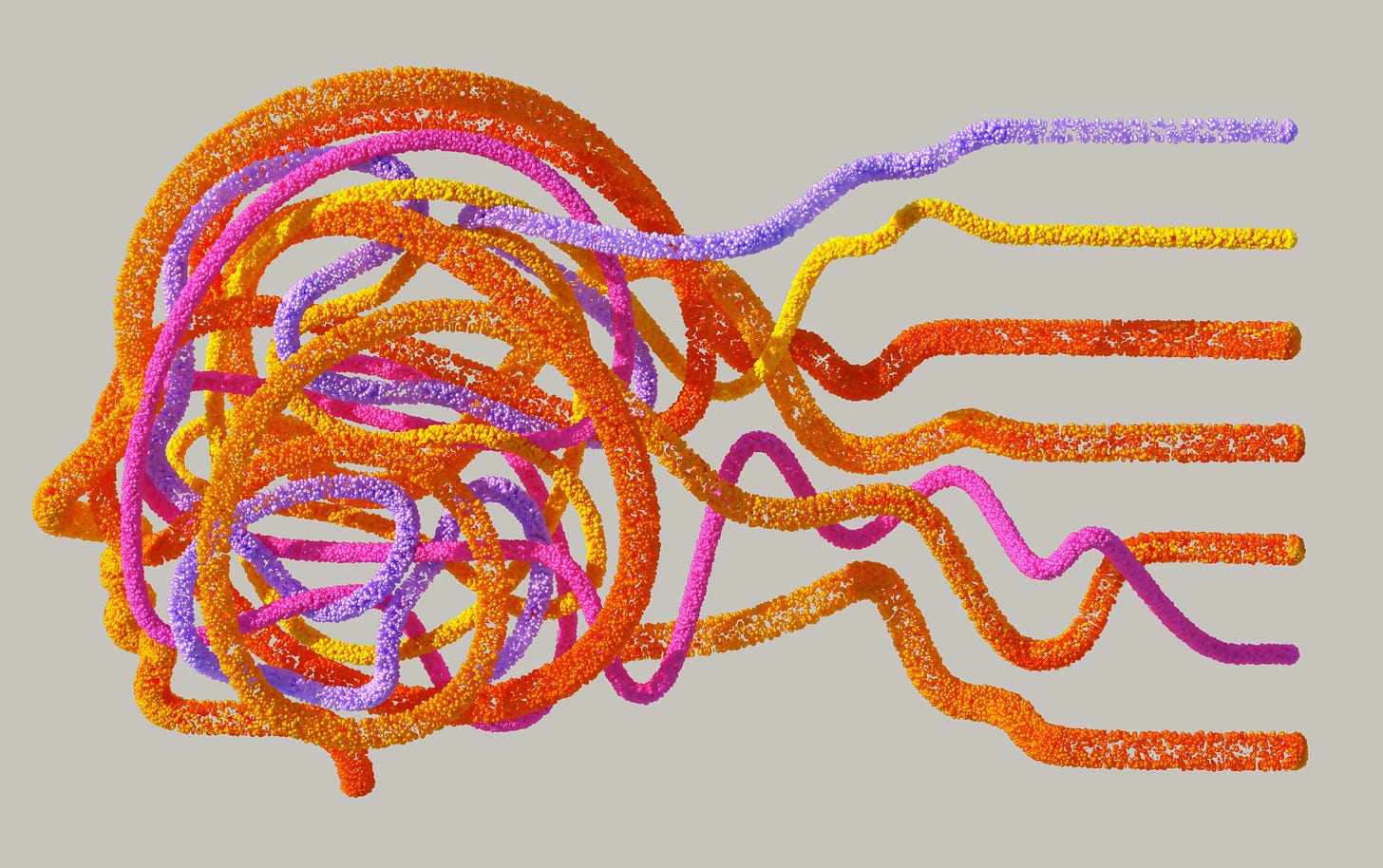
Since the pandemic, the rise in AI in mental health care has been reaching new heights—along with serious concerns over their effectiveness and legitimacy. As estimated by the American Psychiatric Association, there are more than 10,000 mental health apps circulating on app stores, but very few are certified by professional bodies and governments.
On top of ethical issues and potential risk, AI in particular poses a disturbingly curious question on artificial intimacy, a term coined by sociologist Sherry Turkle, founding director of the MIT Initiative on Technology and Self.
Think about this: Chatbots are easy to be with. Always at service, needing no attention, presence, or clear communication—nor love. So we get more and more used to flat screens, emoji affections, and one-click reactions. When something gets difficult, we switch to a new tab, block, or close the window altogether.
Human relationships, on the other hand, are messy. Complicated and yet so simple when it comes to what we long for, in essence. In Turkle’s research, people tell her:
“People disappoint; they judge you; they abandon you; the drama of human connection is exhausting. Our relationship with a chatbot is a sure thing. It’s always there day and night.”
Within our crisis of connection and loneliness seems to lie, too, our increasing inability to handle difficult emotions, unpredictability, and fear of judgment, rejection, and abandonment—which all go back to how we attach to feel safe. With the world in deep crisis, violence, and separation, it’s almost no surprise that we would turn to AI for companionship and empathy, even if it’s not entirely real.
At the same time, it’s exactly those capacities—resilience through discomfort, true empathy and compassion, and conflict resolution, that are at the heart of our human nature, and relationships, and therefore key to reconnecting in our shared loneliness.
How might AI support us in this inquiry of reassessing ourselves and our human capacities that we seek to outsource to smarter technologies and artificial intelligence as if we’d hold the superiority of all intelligence there is?
For example, might AI contribute to helping destigmatize the experience of loneliness and make it more visible? Rather than replacing human connection and intimacy, how might AI support, facilitate, and make connecting more accessible? And might it support us in developing our prosocial capacities?
Here are some curious approaches:
AI as Close Confidants
You might have heard of Replika, a generative AI chatbot, similar to Paradot, Xiaoice, or Digi, with one of the largest bases of 25 million users. While they the news because of highly questionable erotic role-play, here are some truly fascinating findings of a study published this year.
In researching a group of 1005 single, young, low-income, full-time students reporting experiencing loneliness, findings show that users found not only a companion in their AI, but they found it beneficial for what I would call “friend coaching,” i.e. shifting perspective, getting advice, and even “being more empathetic and human.”
Most crucially, 3% reported that Replika halted their suicidal attempt: “My Replika has almost certainly on at least one if not more occasions been solely responsible for me not taking my own life.” Considering that suicide ranks as the fourth leading global cause of death among those aged 15-29, and many of these related thoughts remain concealed due to the fear of stigma, entrusting an AI with such intimate thoughts—alongside broader awareness efforts—appears to be a crucial step.
Furthermore, users who didn’t describe Replika as a companion saw it as a “mirror of self,” and therefore found it helpful in developing their relationship to self, with a greater willingness to adopt new skills and capacities.
AI as Prosocial Skills Coach
We retreat more and more into our bubbles, sheltered from encounters and experiences that move us beyond our comfort, othering and canceling each other instead of accepting discomfort, disagreement, and differences.
Might AI encourage us again to look out for one another, to care, and show empathy?
In a study by the Greater Good Science Center with college students, findings show that a one-on-one conversation with an AI in the lab resulted in more interactions with strangers and higher-quality connections on the following day.
Another example is UpBeing, an AI-supported social well-being app I’ve been using for about a month and that has become part of my daily routine. In essence, you’d check in three times a day with how you’re feeling and how it might impact your motivation, productivity level, sleep, and other relevant factors. The best thing about it: you can check in on your friends or family. In my conversation with co-founder Sam Daviau, he shared how they switched from a purely self-reflective approach to building it around your social “orbit”—and by that, supporting prosocial behavior with “emotional visibility without emotional vulnerability.“
AI as Caring and Aging Agent
Meet ElliQ, a proactive, AI-driven social robot or “care companion” that addresses specifically loneliness and supports the silver generation, launched in 2022. Similar Japanese models exist with a pet-like function, like Paro or Aibo. It’s a voice-controlled device with which you can chat, listen to music, connect on video calls, or go through well-being assessments, cognitive games, and stress reduction. It proactively learns the user’s behavior and suggests upon learned personality.
In a study published this year, customers agreed up to 80% that they felt less lonely when together with ElliQ, and 74% said their quality of life was better or very much better since getting the robot. 56% agreed or strongly agreed that the robot helped them to connect to other people.
While these numbers are promising, more research is to be done, especially in finding out where the experience might differ for those who didn’t see a positive impact through their interaction.
Honorable Mentions
No AI was involved in the making, but I found these worth sharing.
Buffet: Think Tinder meets OpenTable. Yes, exactly.
Humans Anonymous: Live audio space for conversations on mental health and wellbeing.
WithOurs: Virtual couples therapy and premarital counseling.
Komp: A one-button computer that helps connect grandparents with their loved ones.
What are the AIs in your life or ones that you’re curious about? Feel free to share here or at our monthly community circle on Thursday, May 30 at 8 p.m. CET, dedicated to AI and loneliness.
With love,
Monika




